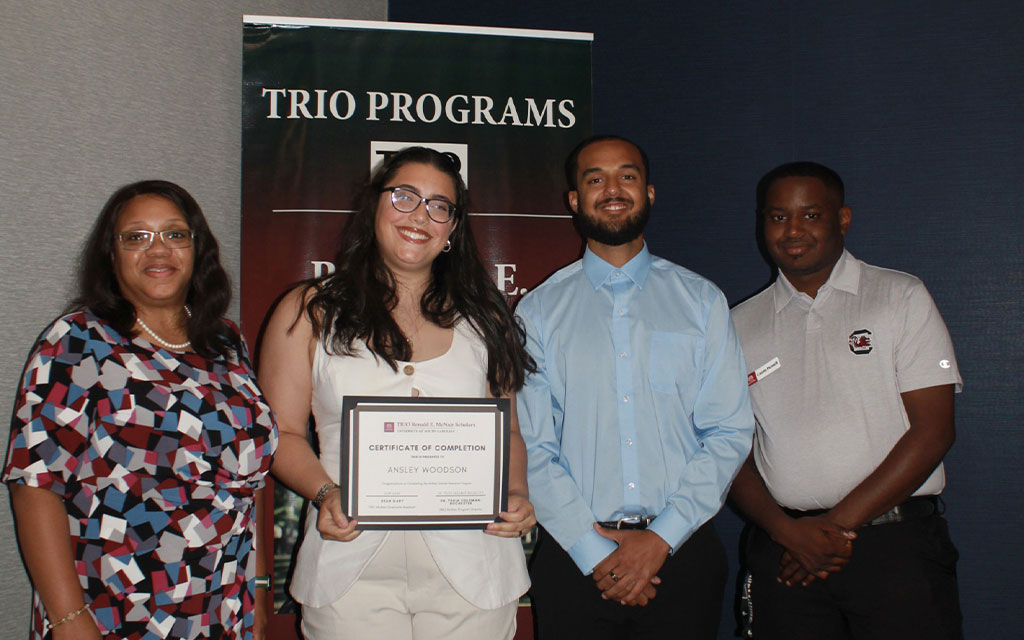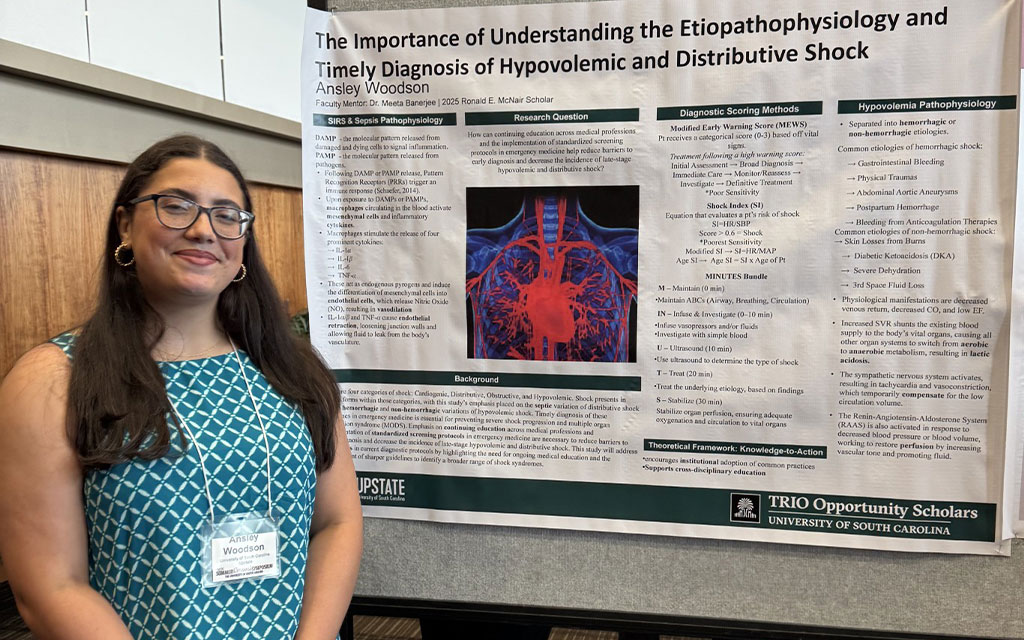
There’s no one moment Ansley Woodson can point to that influenced her desire to study medicine, but there were a few instances that fueled her interest — her parent’s kidney donation and a middle school teacher who focused on anatomy and physiology.
In high school she began getting real-world exposure to medical settings. A health science class her senior year allowed Woodson to participate in work-based learning and shadow nurse aides at Spartanburg Regional Hospital, where she works today.
Now in her second year at Upstate, Woodson is majoring in biology on the pre-physician assistant track. And this summer, as the only USC Upstate participant in the Ronald E. McNair Post Baccalaureate Achievement Program, she had a unique opportunity to develop her skills and prepare for postgraduate studies.
During the six-week internship at the University of South Carolina Columbia campus, Woodson and other students from across the system conducted research and took GRE preparation classes. They also attended information sessions about graduate school, financial responsibility and general wellness.
Woodson researched types of shock related to sepsis, a topic she was drawn to after shadowing a physician assistant in the ICU as part of PA school preparation.
She explains such an infection can disrupt a person’s immune system and result in a near-death experience: “I was just like, I would love to understand how that works on a cellular level,” she said.
The project involved researching how hospitals in the country detect shock in its early stages.
Woodson was paired with a mentor at USC Columbia, Meeta Banerjee, assistant professor of psychology. The guidance was invaluable, Woodson says, especially when she was writing her research paper, something she hadn’t done before.
Banerjee’s questions made her think of clearer ways to explain the subject and find answers she’d yet to uncover. The professor also encouraged Woodson to expand her research to study all four types of shock. She then narrowed it to focus on two, which were distributive and hypovolemic shock.
“I really hope … I am able to educate the public but also educate providers on what it is that you’re looking for and why you’re looking for it,” Woodson says. She notes signs of shock can be missed since the body can overcompensate for it and make a person’s vitals appear normal.
With more information, patients can know what to look for, too, and get to a doctor sooner, Woodson says.

Other highlights of Woodson’s internship included public speaking, such as presenting her research at the 2025 Summer Research Symposium. Woodson says the experience showed her “I can do hard things.”
“In six weeks, I wrote a 22-page research paper, I got over my fear of public speaking and now I am excited to talk about my research,” she says. “If someone asked me about it, I’m happy to go and present it.”
Woodson is grateful for the many people supporting her, including her academic advisor, Franny Robinson; associate professor of biology Kimberly Shorter; and Banerjee and Nazharee Cloude, an alumna of USC Columbia and Johns Hopkins.
After her summer experience, Woodson looks forward to exploring new pathways she hadn’t considered before.
“Without this opportunity, I would have no idea if I even liked to research,” she says. “I wouldn’t be as well informed as I am, and I’m hoping to be able to inform others. [McNair] gives people opportunities that they otherwise may not go for necessarily and shows you that you can do it.”
